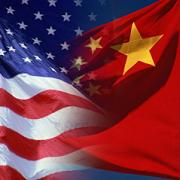Insidious, Risky Strategy: U.S. Builds Asian NATO Against China

Just as it appeared that long-standing spats between Beijing and Washington over such issues as trade imbalances, the valuation of China’s currency, and sanctions against Iran and North Korea might be fading, a new set of squabbles arises immediately afterwards, with tensions building and mounting in recent weeks over events in the Yellow Sea and the South China Sea, and with the signs that the US is trying to meddle and dominate issues involving China.
What irritates China more is, in addition to Hillary Clinton’s aggressive diplomacy at an ASEAN Regional Forum meeting in Hanoi, where she blatantly asserted US has “national interest” in the South China Sea, that Pentagon said Friday the USS Washington is heading for the Yellow Sea for the United States and South Korean naval and air units joint military exercises. To this, the Chinese public responds angrily, accusing Washington of needlessly escalating tensions in the region, although the government is still edging its way in the diplomatic barbs being exchanged between the two powers.
Obama administration, however, is experimenting a new, more insidious but very risky diplomatic strategy in the region, where it has for long played hegemonic power, to contain an emerging great power— Drifting from confrontation to confrontation with a rising China, as Washington is now doing. This will bring about the doomed fallout. In a not very long American history, perhaps, the only bitter lesson to the super war machine is taught by China—-which has never rewarded it with a single chance to declare a complete victory on whatever occasions.
The U.S. decision to include an aircraft carrier in the exercise is considered especially provocative, and some Chinese suspect that Washington is sending a “strong message” about American power to China as well as North Korea. And that the US carrier maneuvered to its former foe Vietnam arouses wild speculations about whether the US is bent on building up a NATO in Asian version.
Indeed, the physically existent NATO may be unlikely to come into being, but psychologically, the US is coaxing and coercing China’s neighbors to join in its galaxy. It is understandable that some SE Asian countries cannot be fully disarmed at the sight of the rise of a giant neighbor, and it is also reasonable that they take shelter from a mighty ally, in that the American preeminence in the region is not only seen by its densely scattered military bases, but its close-knit economic ties with these countries.
However, the US is by no means all-mighty. Being parasitic to or heavily reliant on the super power would inevitably deal a disastrous blow to the national interests of the involved Asian countries. On the other hand, China and its Asian neighbors, albeit intriguing against each other at times, have their respective interests overlapping and hence would go through thick and thin together. And geopolitically, China’s neighboring countries cannot afford the side effects resulted from face-off with China.
Relations between China and the United States have become decidedly testy in recent days and the US is anxious to find its proxies in the region by inciting their discontent with China and pulling them to the American side.
Like a contemptible wretch making trouble, these mean and petty actions taken by the so-called super power would fail to help it get the desired fruit—to effectively counterbalance China in Asia. What China needs to do is just to beef up its confidence in handling the frictions with its neighbors, and through this, to elevate its political credibility and authority in the region.
And to prove China offers to cooperate rather than confront.
The articles in this column represent the author’s views only. They do not represent opinions of People’s Daily or People’s Daily Online.

